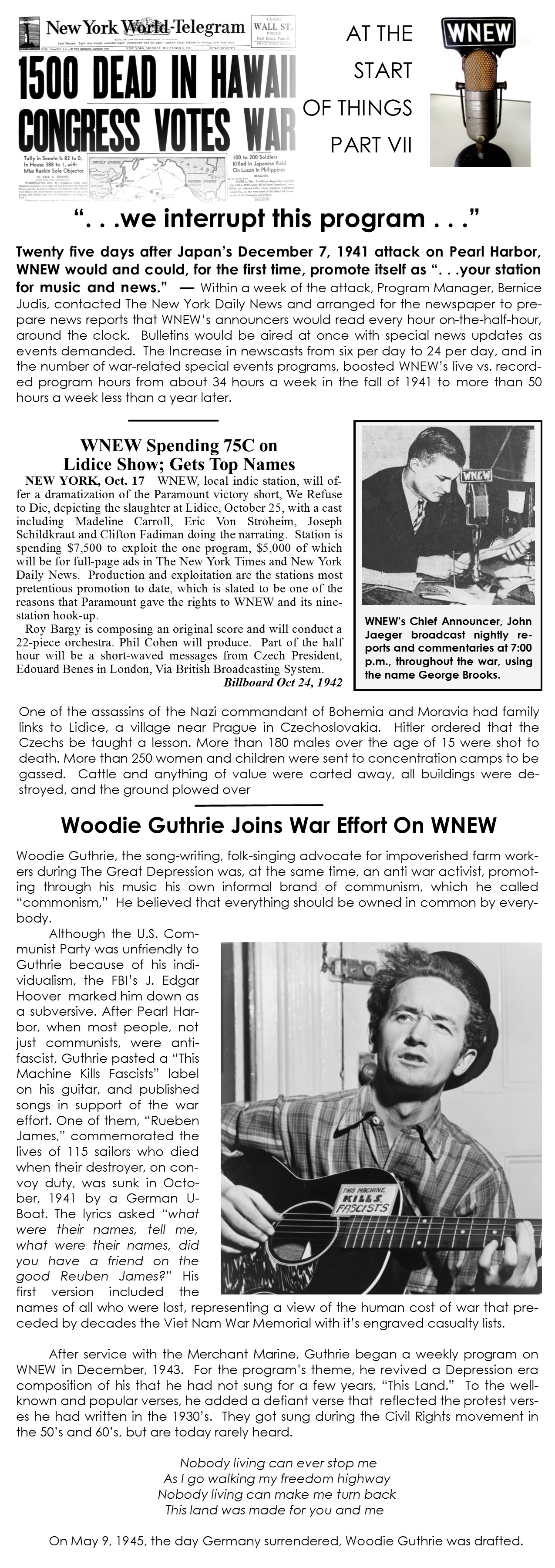
“This Land” — Woodie Guthrie (sample)
“Reuben James” — Woodie Guthrie (sample)
More of “. . .we interrupt this program . . .” in our next report. ECB

“This Land” — Woodie Guthrie (sample)
“Reuben James” — Woodie Guthrie (sample)
More of “. . .we interrupt this program . . .” in our next report. ECB

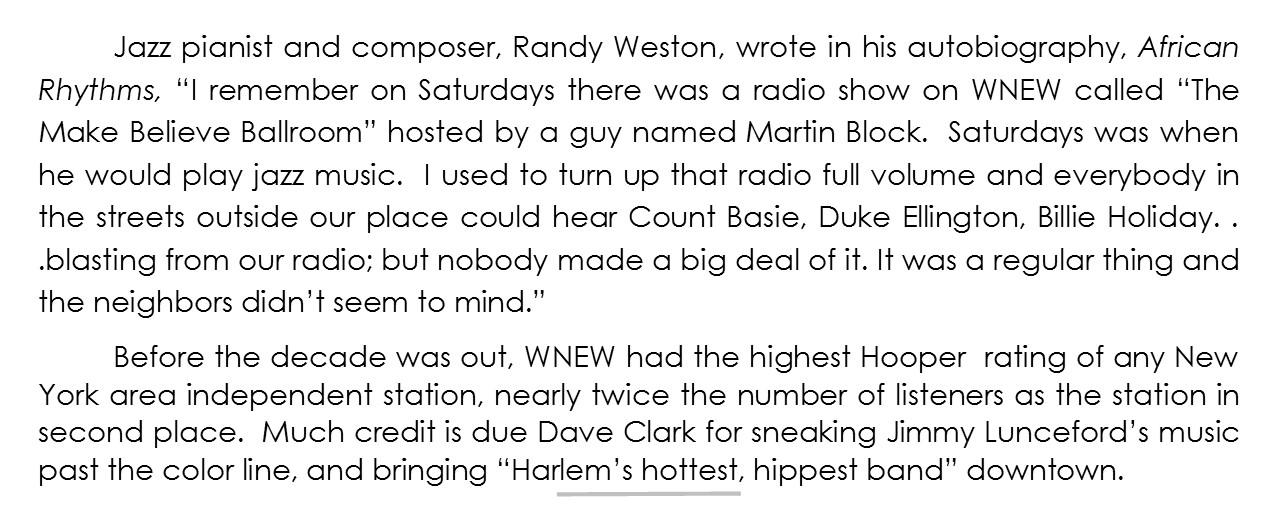
ECB
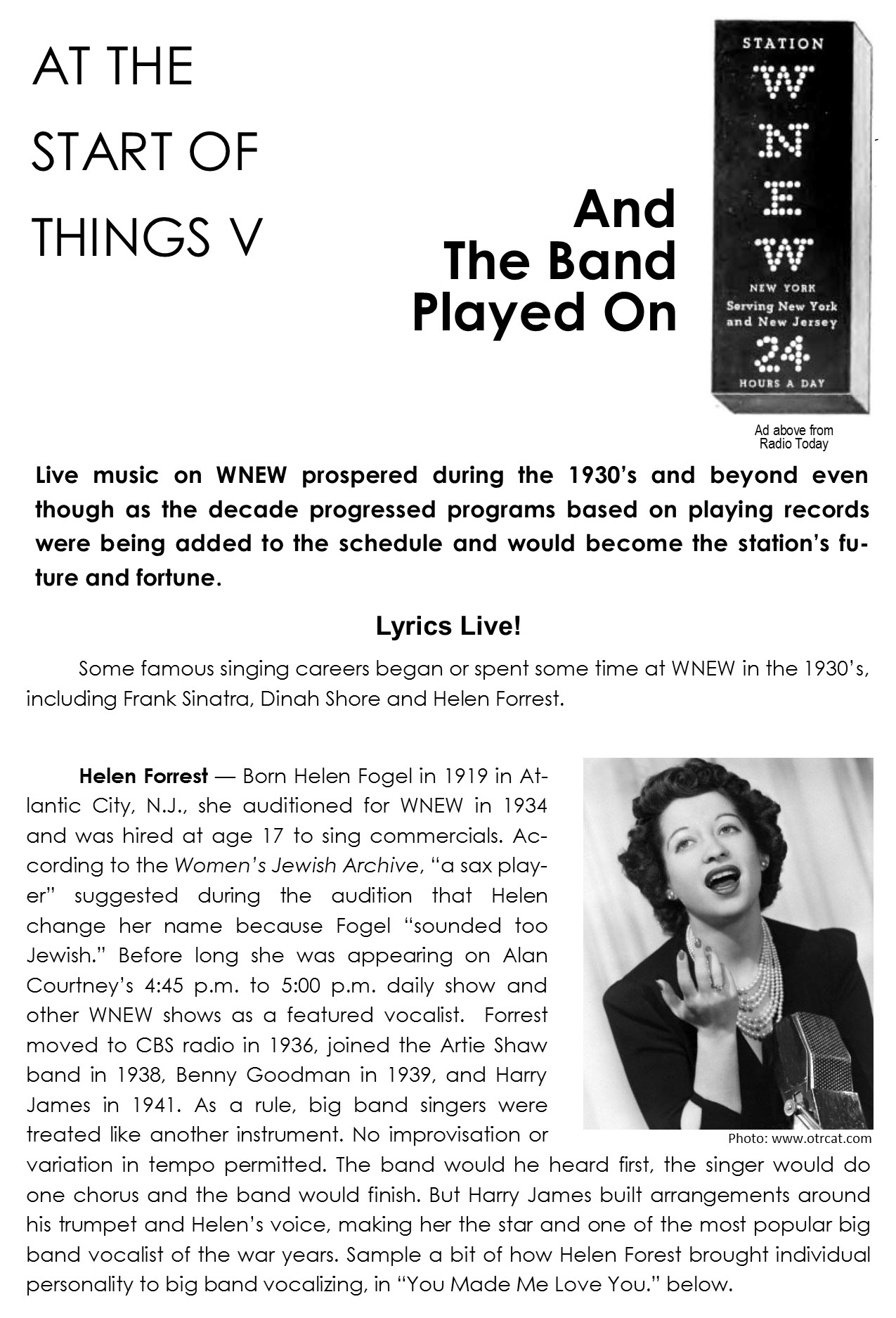
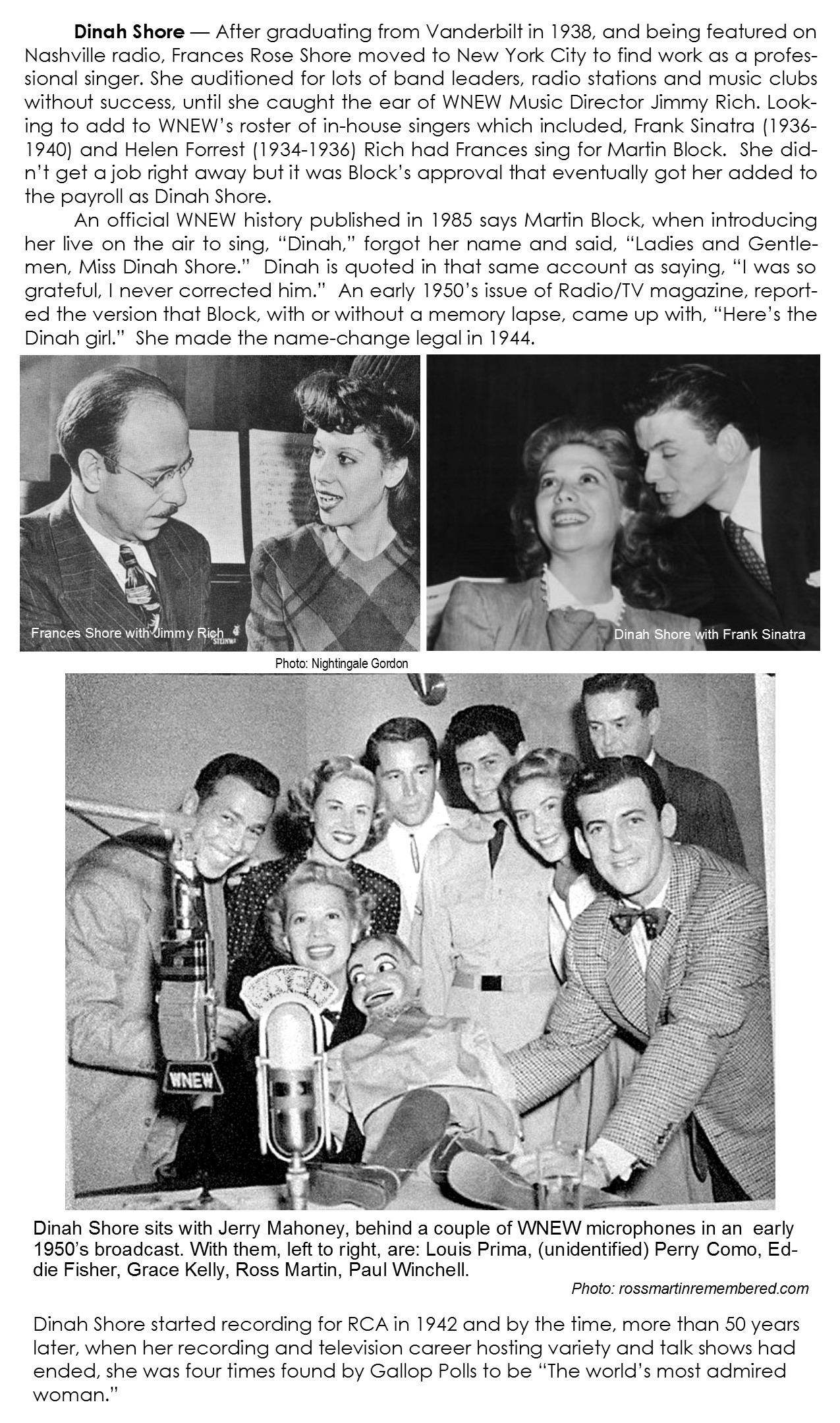
Dinah Shore, “Skylark,” 1942 (:35)
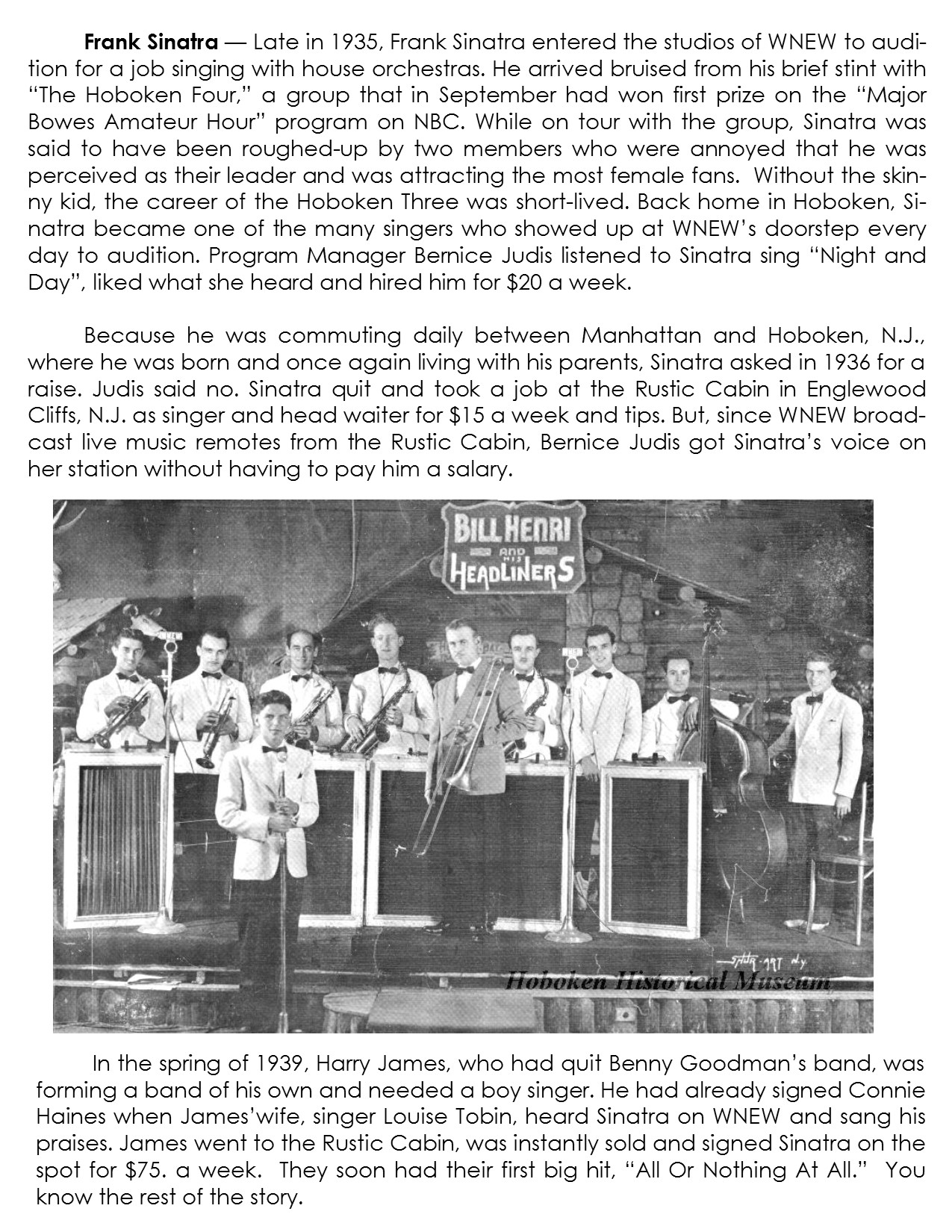

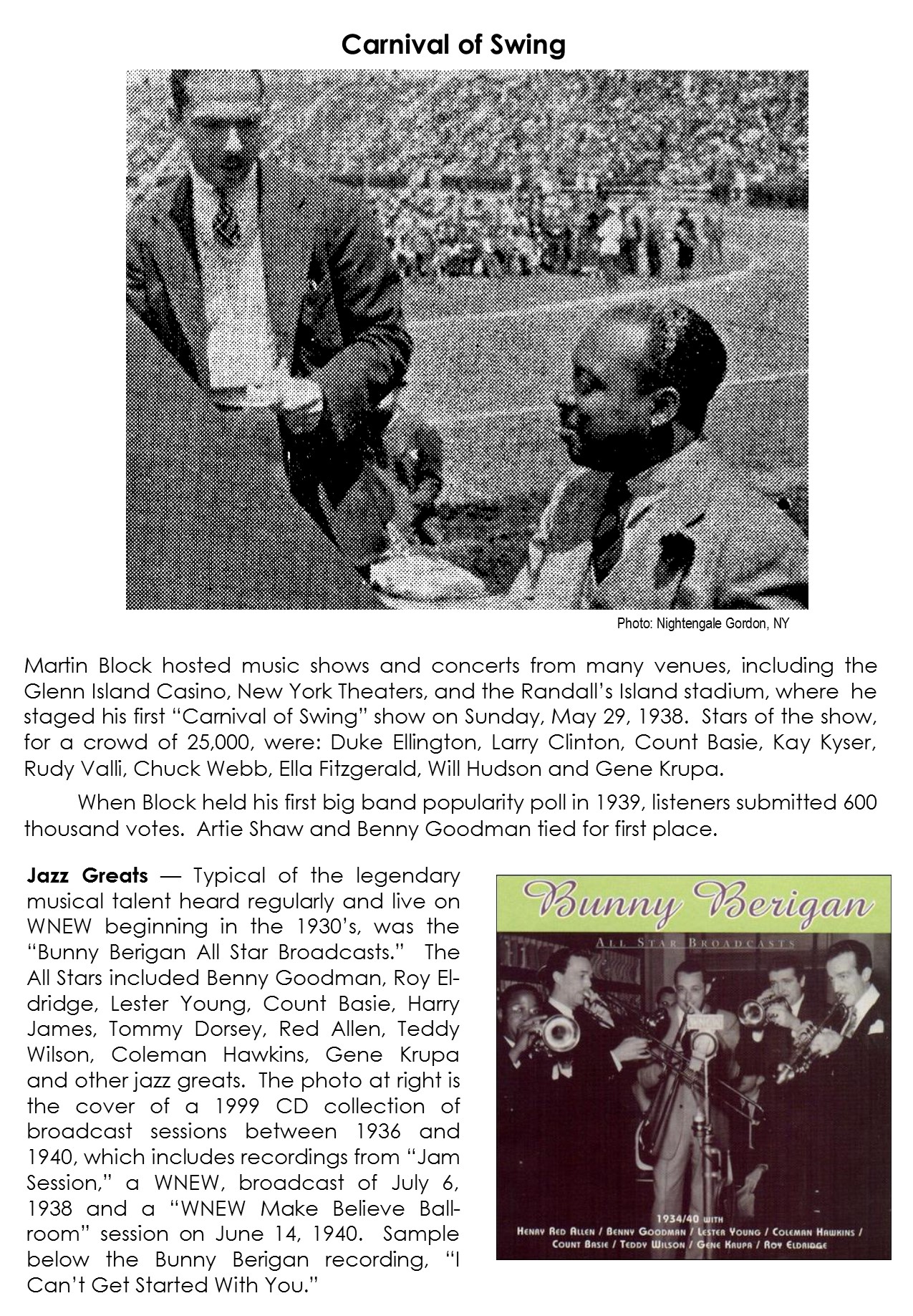
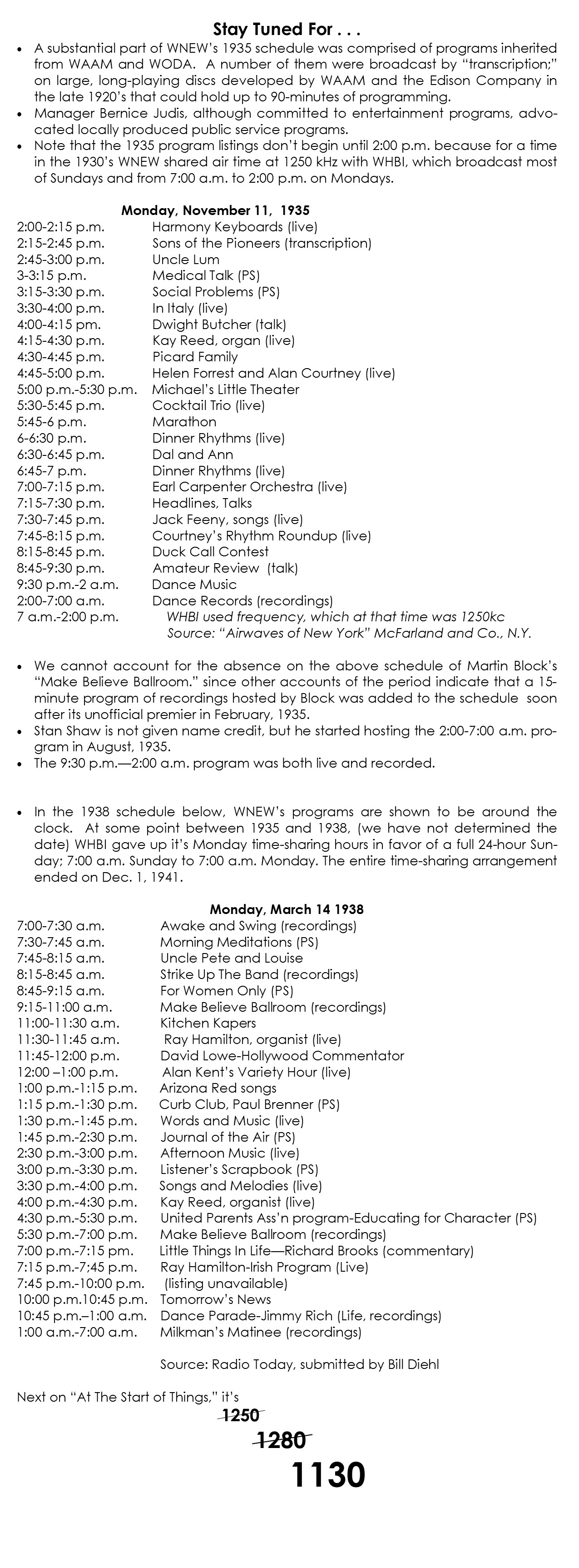
ECB

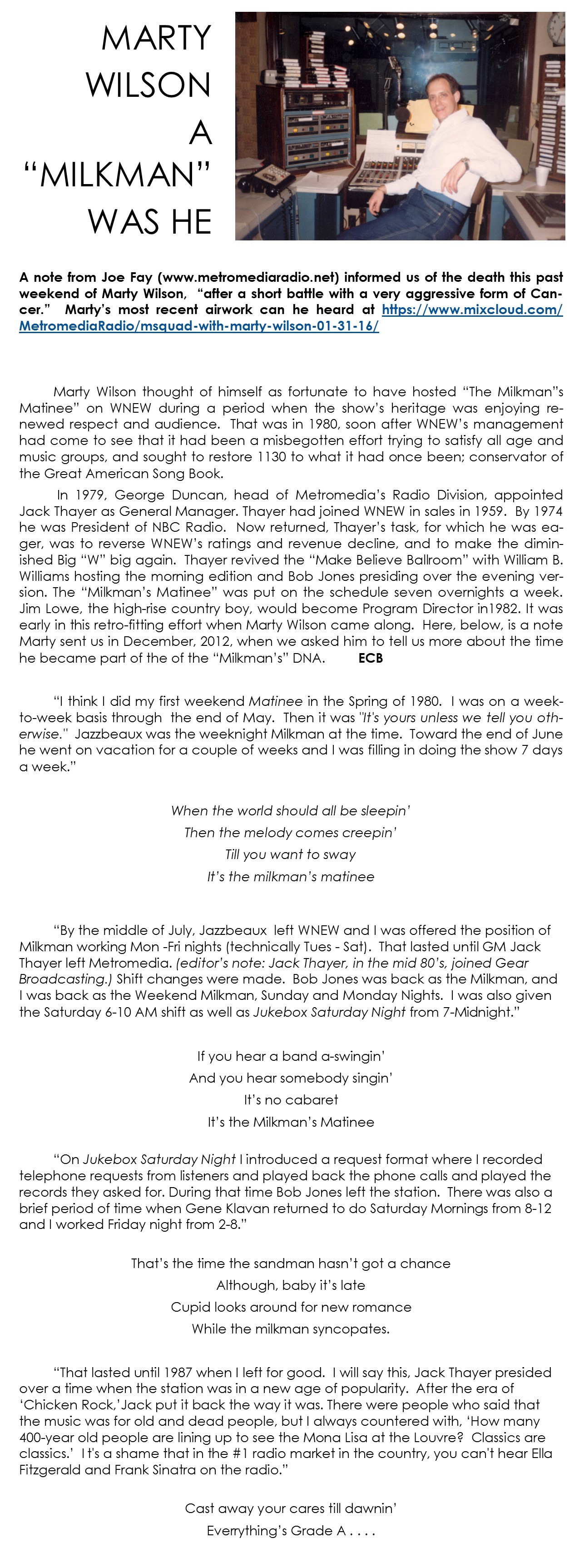
For more about Marty Wilson:
http://wnew1130com.ipower.com/music-2/staff/u-v-w-x-y-z/marty-wilson/2673-2/
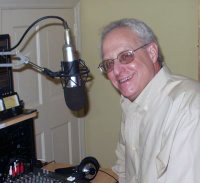 Marty became interested in broadcasting at a very young age. His parents surprised with him with tickets to be in the Peanut Gallery on the “Howdy Doody Show.” He spent more time looking at the cameras, mike booms, and production staff than he did at Buffalo Bob and the puppets!
Marty became interested in broadcasting at a very young age. His parents surprised with him with tickets to be in the Peanut Gallery on the “Howdy Doody Show.” He spent more time looking at the cameras, mike booms, and production staff than he did at Buffalo Bob and the puppets!
A few years later he took the tour of NBC Radio and was hooked. In junior high school he became a member of the Cousin Brucie Fan Club and would visit the WABC studios on West 66th Street. He then worked for Bruce backstage at Palisades Amusement Park.
After enrolling at City College he majored in cutting class to work at the college radio station where he became Assistant Station Manager and hosted a number of shifts.
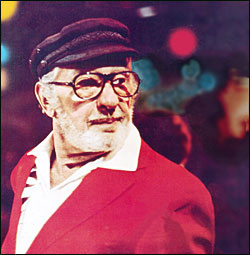
In 1968 he got a job at WEVD as a summer and part time engineer. In addition to learning how to understand commercials in 16 languages, he met Symphony Sid. One night at a remote from the St. George Hotel in Brooklyn, Sid became a little “under the weather.” He turned to Marty and said, “You finish the show, I’m going home.” Marty then moved to the other side of the glass. He became a staff announcer, and when Sid retired, Sid gave him his record collection and later Marty hosted his own show, “Jazz Through The Night,” at times broadcasting from his Upper East Side apartment in a studio he built.
After leaving WEVD, he worked briefly at WHLI with the “Music Of Your Life” format.
During the “Jazz Through The Night” years he met Bob Jones, who was on the air at WNEW. Bob convinced PD Jim Lowe to give him an audition. The audition consisted of, “Here’s a reel of tape, there’s the studio, there’s the record library, do an hour.”
He was hired as the weekend host of the ”Milkman’s Matinee” and shortly thereafter became the full time Milkman following in the footsteps of a number of great hosts. He introduced a number of features during that time including an audience participation novelty called “It Could Be Verse” where listeners would try to guess what song was playing just by listening to the verse. Ted Brown enjoyed his style and insisted that Marty be his vacation substitute.
In 1987 Marty also conceived the idea for a syndicated program, “A Moment Of Musical History”, a daily feature, that was heard nationally and is still on the air as of this writing in 2012!
After leaving WNEW, he and a college buddy of his bought a station in New Haven, Connecticut, which he ran for nine years. After selling the station he joined the staff of “Jukebox Radio,” doing afternoons and then middays.
Now he concentrates on doing voice-overs and producing commercials for a variety of clients and agencies from his own studio in sunny South Florida.
Editor’s Note: Symphony Sid: http://en.wikipedia.org/wiki/Symphony_Sid

William B. Williams: The Lone Ranger
The audio segment above is from “The Home Front” WWII documentary that premier on WNEW in 1983.
The next installment of “At The Start Of Things,” will focus on WNEW’s early years. ECB
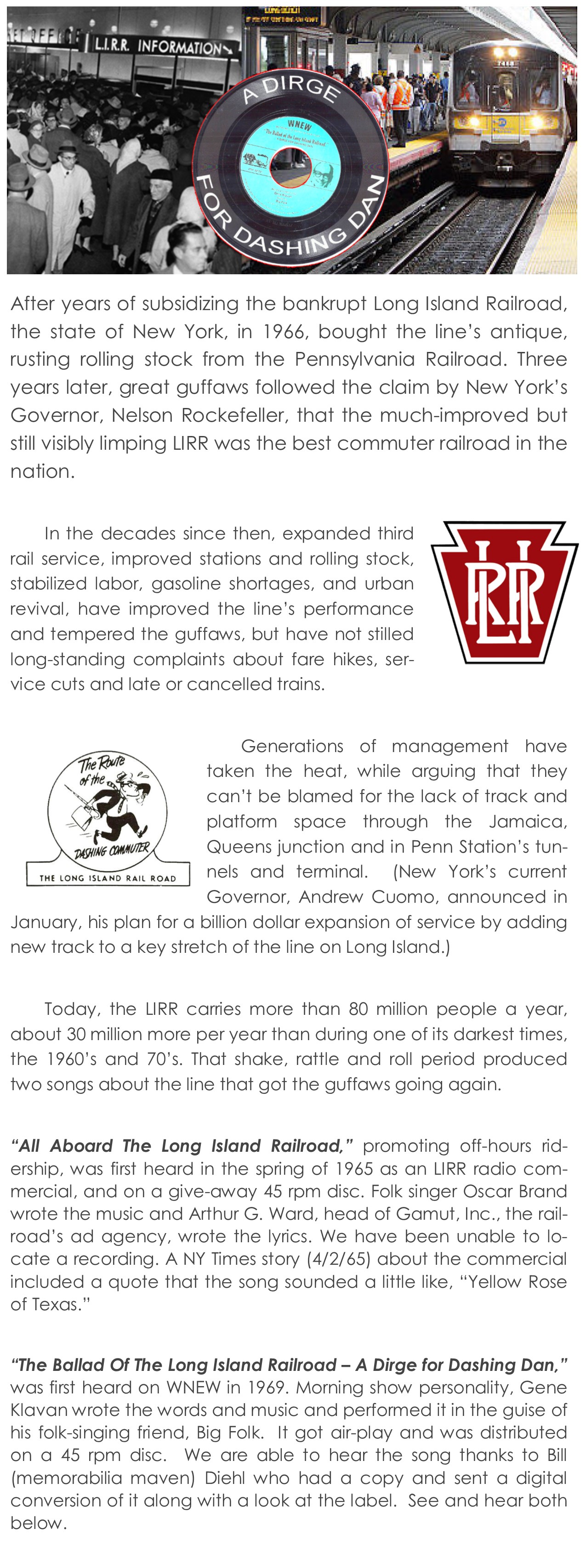
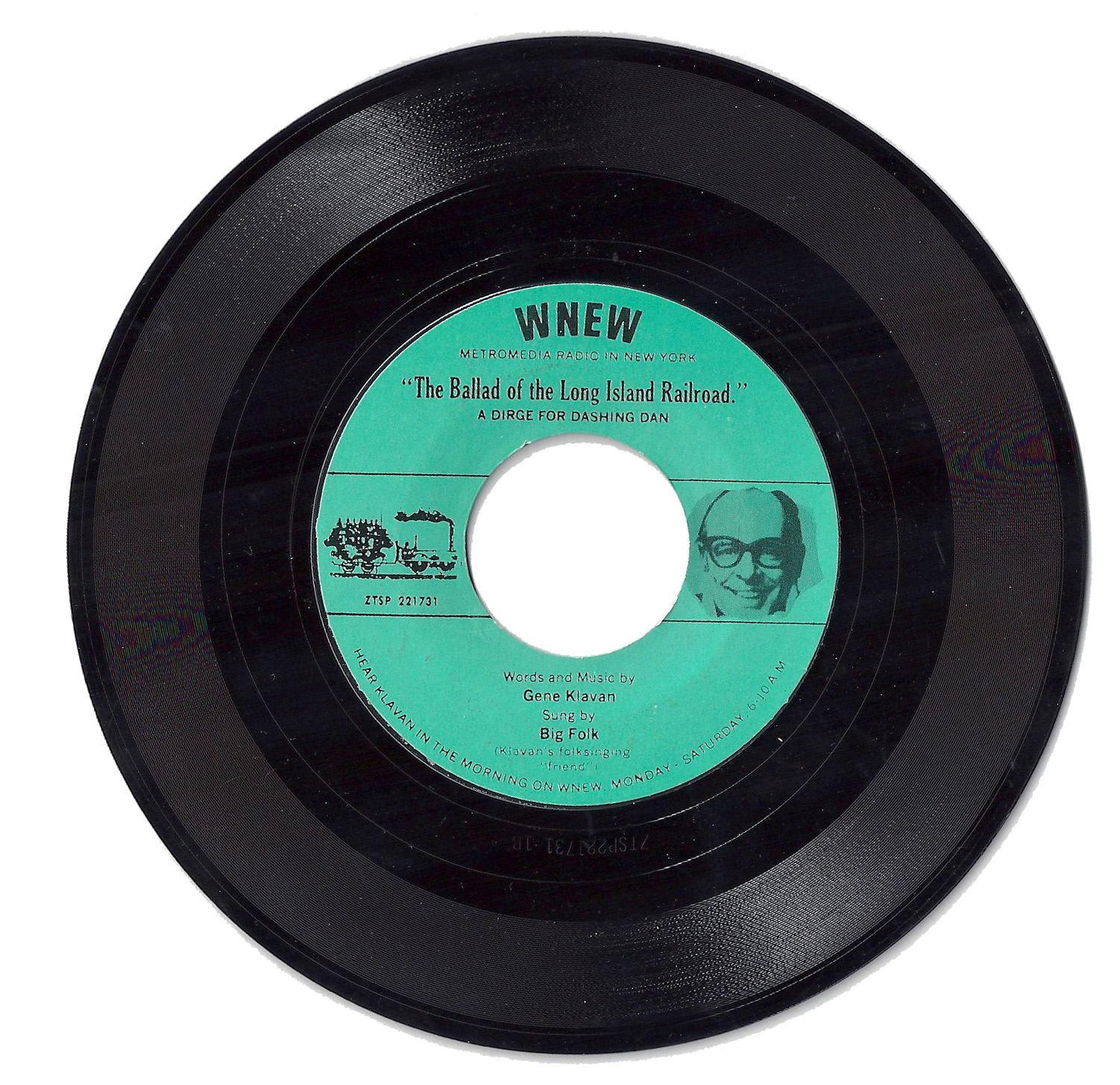
Ballad of The Long Island Railroad – A Dirge For Dashing Dan
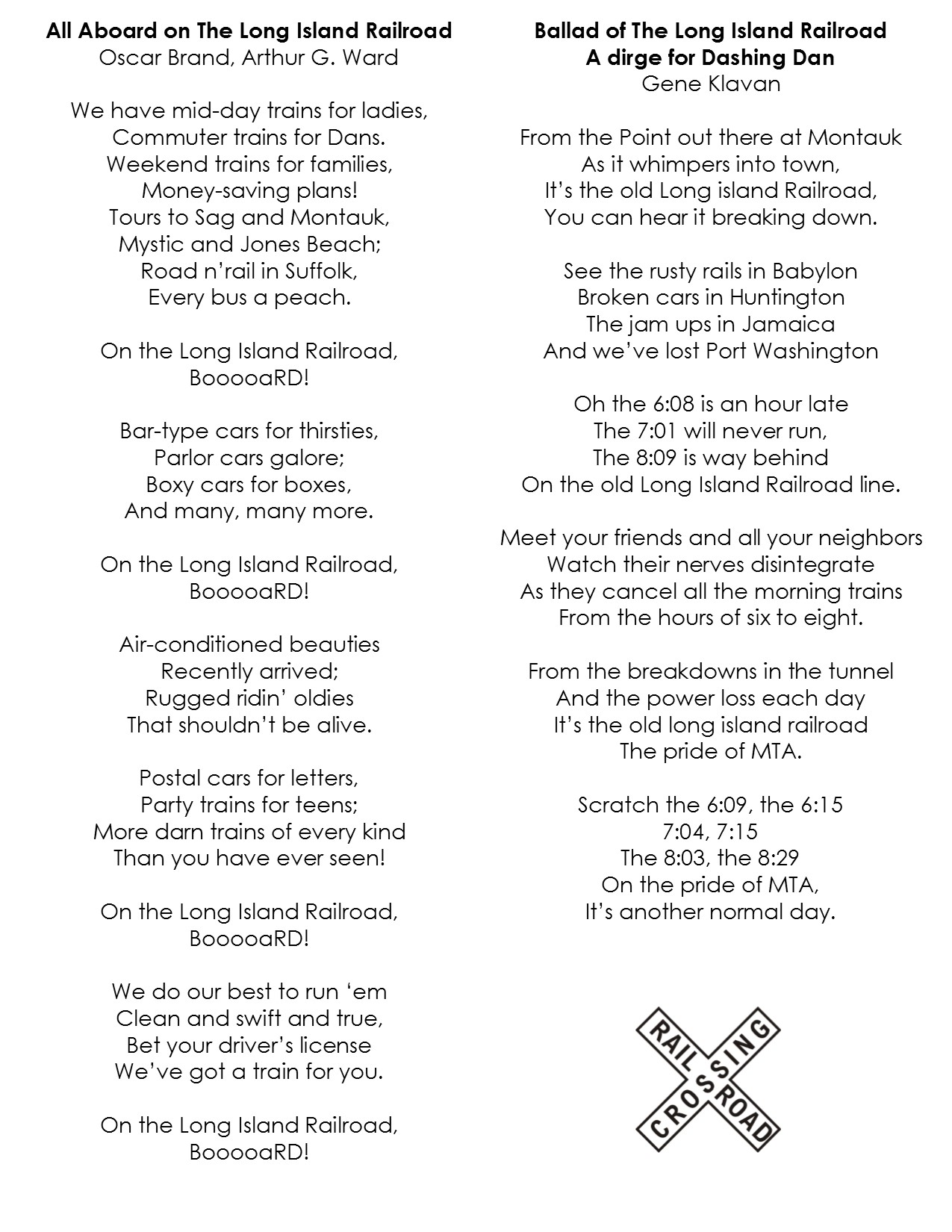
 Vince Santarelli has, for about 20 years, been keeping track of the comings and goings, anniversaries, day parts and ratings of people who worked behind microphones. We’re pleased to add a link (below left) to his website, “Apple Bites,” because we are in the remembering busines, too, and Vince’s charts are filled with names we know and know of, and of events we experienced, or know to be important markers in radio history. Thanks to Bill Diehl for brining these sites together and to Vince Santarelli for working the field faithfully for so many seasons.
Vince Santarelli has, for about 20 years, been keeping track of the comings and goings, anniversaries, day parts and ratings of people who worked behind microphones. We’re pleased to add a link (below left) to his website, “Apple Bites,” because we are in the remembering busines, too, and Vince’s charts are filled with names we know and know of, and of events we experienced, or know to be important markers in radio history. Thanks to Bill Diehl for brining these sites together and to Vince Santarelli for working the field faithfully for so many seasons.